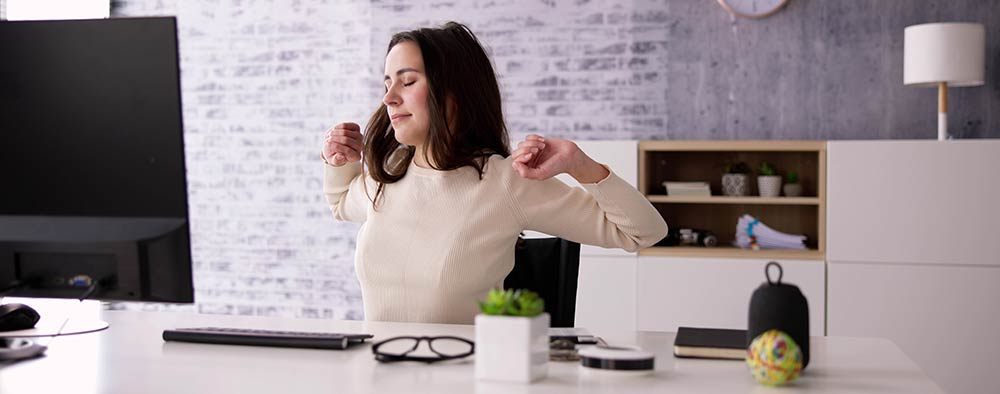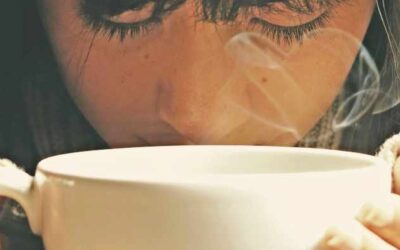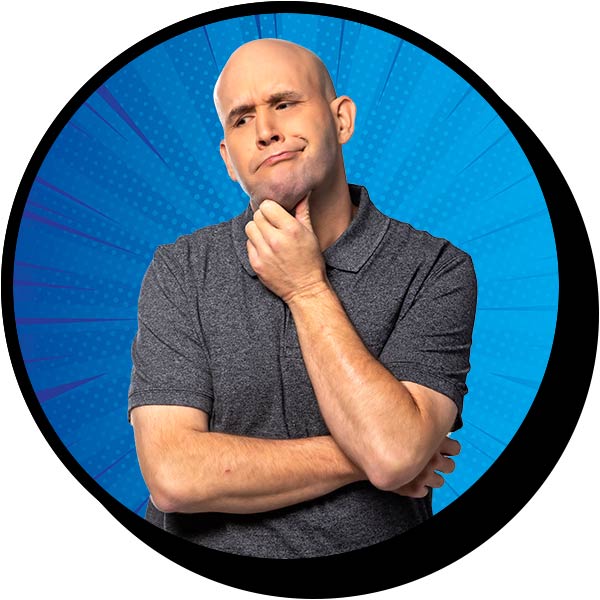by Brent Hearn •
Perhaps you’re familiar with one of the following scenarios…
- It’s mid-afternoon, and you’re hard at work at your desk. You’ve been in the flow, and when you finally come up for air, you realize you’ve been hunched over for who-knows-how-long without even realizing it. You put your hands on the armrest of your chair, turn to one side, and your back releases a loud POP.
- After a long day of running errands and taking care of some overdue housework—all while feeding, changing, and playing with that tiny bundle of energy that seems to have skipped walking altogether in favor of stumbling like a tiny, inebriated person all over the house—you pull up a yoga video on YouTube and on the very first pose…POP!
- You’re halfway through a run when you slow for a moment to tie your shoes. You reach down and…POP!
Whether it’s intentional or not, many of us are familiar with the audible (sometimes very audible) POP or CRRRRACK that results from a stretch or a shift in position. But what causes it? Is it safe? Is it okay to pop your own back?
Read on, friends! We’re here to give you the good, the bad, and the just plain weird about back popping.
What Causes It?
What doesn’t cause it is your joints being put back into place. Your back’s various percussive sound effects might lead one to believe that’s the case—or that perhaps it’s caused by something even more traumatic, like vertebrae knocking against each other. Thankfully, we have spinal discs that prevent this!
We’ll discuss a bit further in “The Weird” section below, but the short answer to what seems to cause the pop is…gas. Somehow, “pop” or “crack” sounds better than “back flatulence,” doesn’t it?
The Good
There’s good news when it comes to popping your back (or having it popped by a professional):
- It can feel good! Whether the satisfaction that comes from a good pop is due to a release of endorphins, a placebo effect, or some combination of the two seems to be up for debate.
- Generally speaking, it doesn’t hurt anything to crack your back within reason, though this may change as you age and the cartilage in your back begins to wear down. (If you do feel pain, stop popping your back and get it checked out.)
The Bad
There are caveats. (Would you have expected anything different?) Here’s the flip side of the coin:
- Popping your back too quickly or too forcefully can cause numerous problems, including pinched nerves and strained/torn muscles.
- Over time, cracking your back too frequently can result in permanently stretched ligaments (perpetual instability) that could contribute to osteoarthritis as you age.
- Back popping that is too forceful or frequent can injure blood vessels. This could result in serious complications, including dangerous blood clots with possibly life-altering—or even life-threatening—implications (strokes, aneurysms, etc.).
- Don’t let anyone who’s not a professional pop your back!
It’s one thing to (carefully) pop your own back via proper stretches and exercises; it’s quite another to entrust your spinal health to someone who doesn’t have the proper training. When you’re doing it yourself, you have the benefit of first-person feedback. In other words, you know your body and you’re familiar with your pain threshold, so you’re less likely to injure yourself.
This feedback isn’t present when you hand over the reins to a friend or acquaintance, even if they swear up and down that they know what they’re doing. If you want someone else to pop your back, make an appointment with a chiropractor or other licensed professional. There’s a reason there’s specialized training for this stuff. Don’t be a cautionary tale.
The Weird
We said we’d circle back to the cause of your back’s various sound effects here, so here we go. Yes, it seems to be caused by gas, but there’s some disagreement as to precisely what’s happening—even though the process has been caught on MRI!
There’s a lubricant in your joints called synovial fluid. It contains various gases—oxygen, nitrogen, and carbon dioxide—that provide nutrients to the joints’ cartilage. When the right amount of force is applied to these joints, these gases are released. However, there’s debate about whether it’s the collapse of these gas bubbles that causes the popping sound or if it’s the creation of a gas-filled cavity when the joints stretch that’s responsible for the cracking
With all the advances made in medicine and technology, it’s kind of nice to know there are things about the human body that even the experts scratch their heads and basically say, “Well, we kinda understand sorta what’s happening, but past that…lol, who knows?”
Sources:
SELF: What Happens When You Crack Your Back?
healthline: What Happens When You Crack Your Back?
The Sydney Morning Herald: Why does back cracking feel so good? The ‘pop’ explained
In the Know: Chiropractor’s Back Cracking TikToks Rack Up Millions
Medical News Today: 6 ways to crack your back









 ▶︎
▶︎  Why is the Discount Challenge prize amount $15,024? Because that is the average “per-occurrence” fine for Medicare inducements. That’s not $15,024 per patient, that’s not per provider, that’s PER VISIT. Stinks, doesn’t it? To us, the prize amount is worth the investment if we can help our profession better understand proper discounting.
Why is the Discount Challenge prize amount $15,024? Because that is the average “per-occurrence” fine for Medicare inducements. That’s not $15,024 per patient, that’s not per provider, that’s PER VISIT. Stinks, doesn’t it? To us, the prize amount is worth the investment if we can help our profession better understand proper discounting.